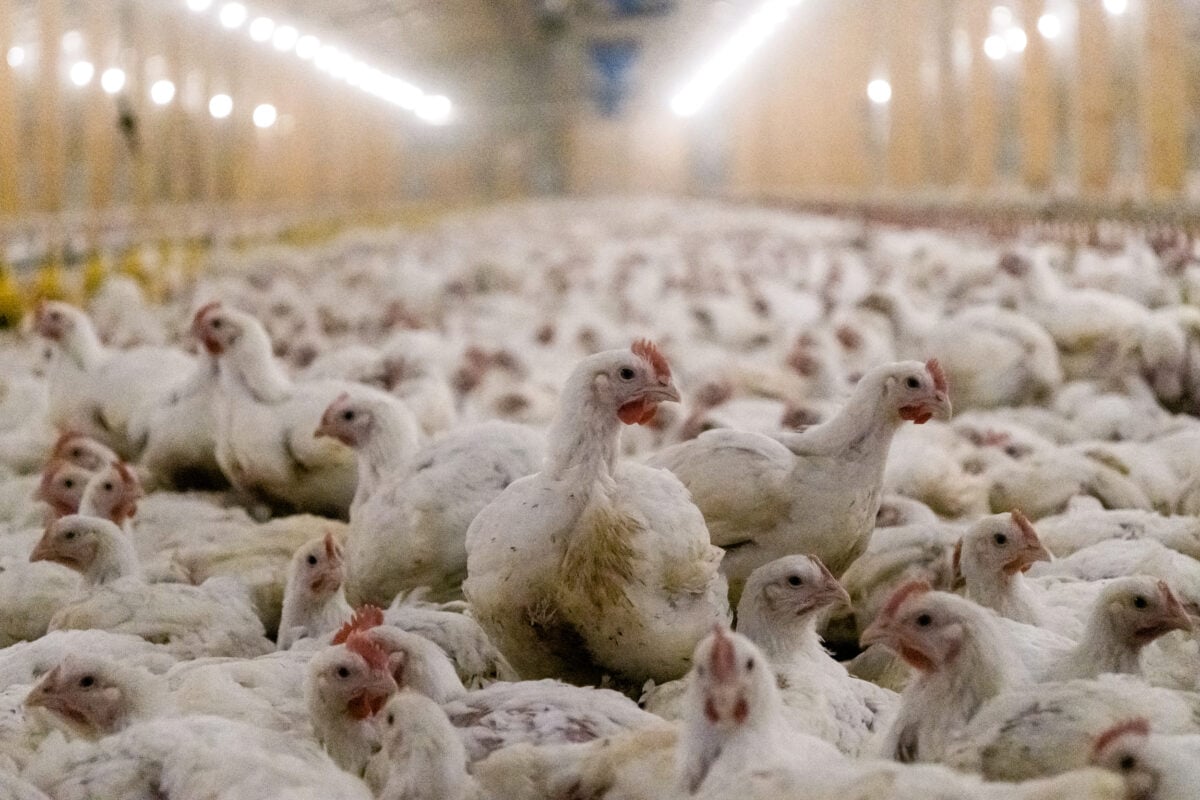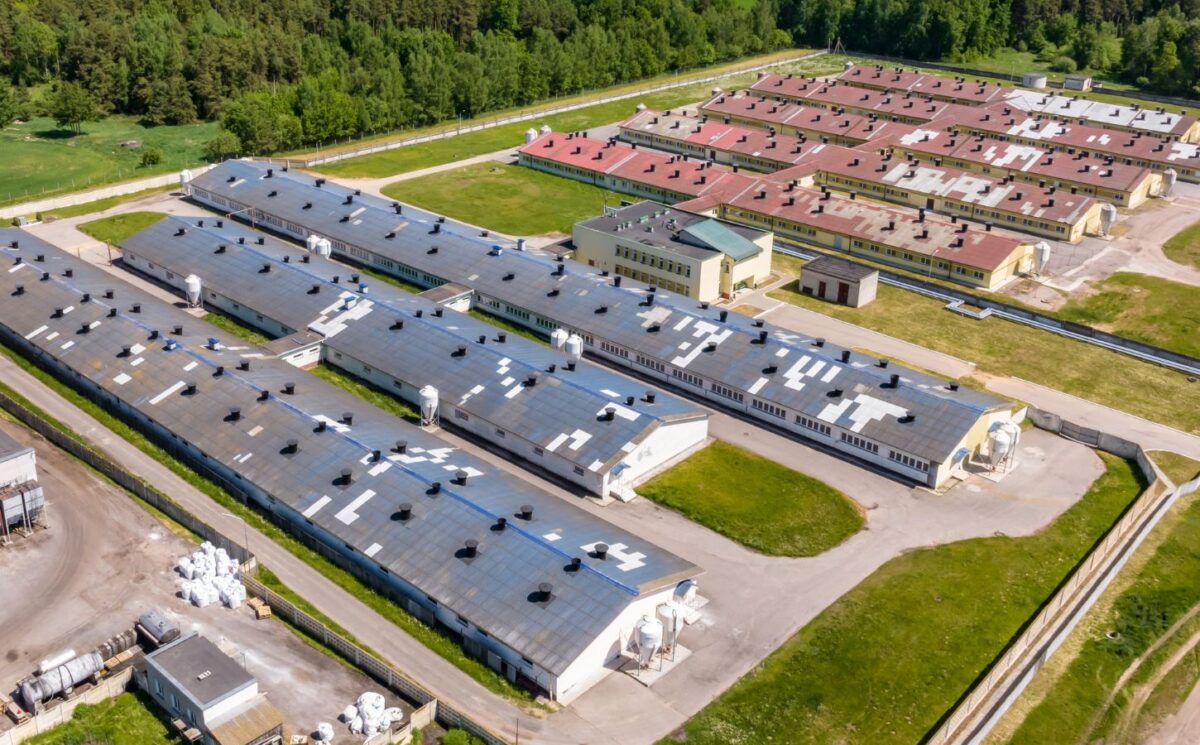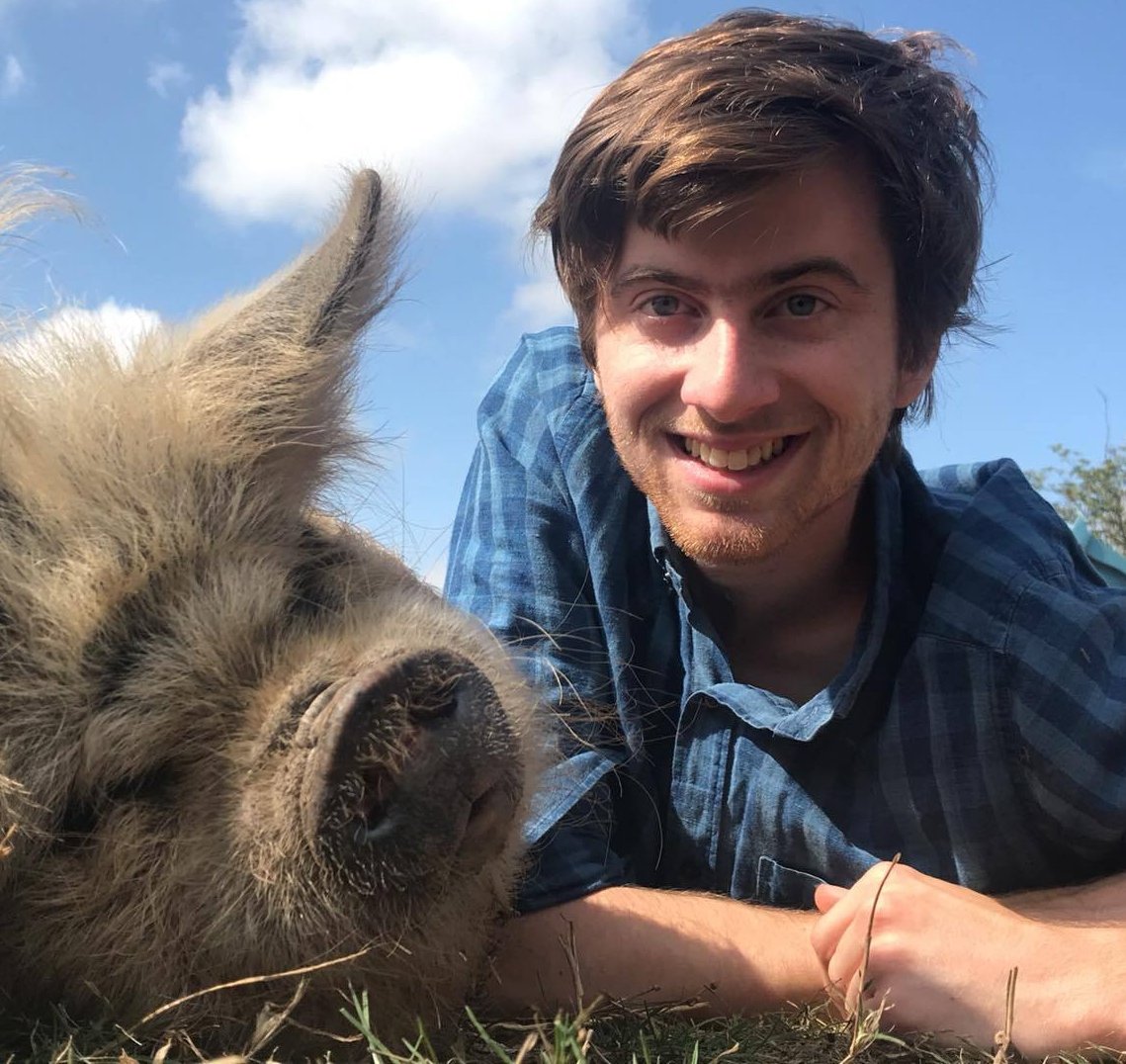UK farming is becoming ever more intensive, with huge ethical and environmental consequences, research shows.
According to a new report by Compassion in World Farming, an animal welfare charity, the UK has seen a 20 percent rise in US-style “mega-farms” for chickens and pigs since 2016.
While many people associate animal agriculture with green pastures, this is far from the reality of modern-day UK farming. In total, more than 85 percent of animals in the UK are now raised on factory farms.
As well as cruel to the animals, mega-farms can have a devastating impact on human and environmental health.
Anthony Field, from Compassion in World Farming, said in a statement: “Megafarms are often hidden from public view. This Investigation shines a spotlight on their rising numbers, clearly illustrating the desperate, broken, and unsustainable food system we have created.”
US-style mega-farms in the UK
Despite government promises to move away from mega-farms, the UK has seen large-scale intensive farming increase in the past decade.
A mega-farm in the UK is roughly equivalent to a Concentrated Animal Feeding Operation (CAFO) in the US. To qualify for the label, farms need to pack in huge numbers of animals. A pig mega-farm must have 2,500 or more pigs. For dairy cows, the number is 700, while for “beef” cows it’s 1,000. For chickens, the totals are at least 125,000 chickens raised for meat, or 82,000 “egg-laying” hens.

As part of its investigation, Compassion in World Farming released an interactive map that shows the counties with the highest number of confined animals in the intensive farming system. Topping the list are Lincolnshire (35.8 million) Shropshire (27.3 million), and Norfolk (25.7 million).
The situation could yet get worse. A proposal for two new mega-farms in Norfolk is under consideration. Hundreds of local residents have submitted objections.
Health risks abound
Mega-farms pose a major risk to human health. The confinement of so many animals in cramped and crowded spaces creates the perfect breeding ground for diseases to spread and evolve.
Factory farms are a leading contributor to antibiotic resistance. Indeed, a report last year from World Animal Protection UK found that antibiotic overuse on UK factory farms is causing around 2,000 human deaths a year.
Larger numbers of animals also results in more waste. In the US, large-scale pig farming has had devastating impacts on residents of North Carolina. Many have suffered adverse health impacts caused by manure spread on fields near their houses.
Mega-farms are an environmental disaster

Similarly, mega-farms have devastating environmental impacts. Notably, feed for intensively farmed chickens and pigs directly causes deforestation in South America.
In the UK, waste runoff from chicken farms have caused massive algal blooms, effectively killing all life in some rivers.
Additionally, as the number of megafarms rises, so too does pollution. For example, sixty percent of fine particulate pollution in the UK comes from ammonia from farms, released from animal manure and synthetic fertilizer. This ammonia drifts to cities and helps create deadly particulate matter.
Animal agriculture is responsible for at least 16.5 percent of global greenhouse gas emissions. Consequently, some governments and policymakers are trying to use intensification and a shift away from ruminant meat to reduce this. At COP28, the UN Food and Agriculture Organization (FAO) said that measures relating to food systems should “prioritize enhancing the efficiency of production.”
The environmental and health impacts of mega-farms show how dangerous further intensification of animal agriculture could be. Instead, a plant-based food system would provide a sustainable solution for animals, humans, and planet.






